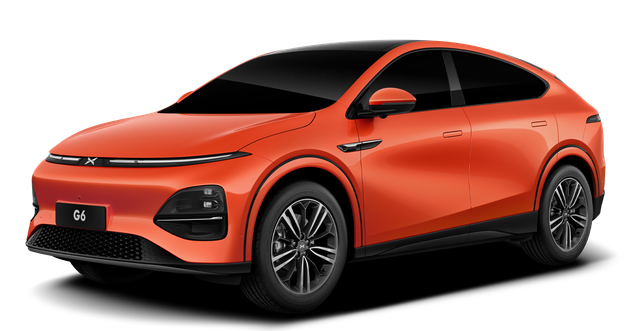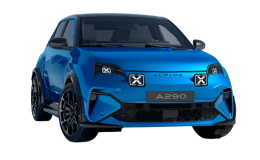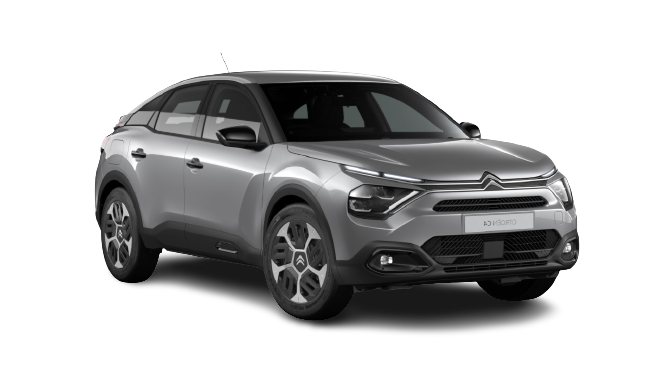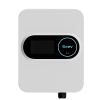Our experts answer your questions with a smile
Monday to Friday
9am - 12:30pm - 2pm - 7pm
What is a heat pump on an electric car?
The heat pump on an electric vehicle (also known as a heat pump) is similar to a conventional heat pump at home, in terms of how it works.
In principle, on some electric vehicles, the heat pump transfers thermal energy from a cold source to a hot source, then distributes it to other parts of the vehicle.
Good to know: the heat pump is totally different from the preconditioning system. The latter heats the battery to the correct operating temperature. Without it, the driver may face a number of consequences, such as :
- reduced efficiency of regenerative braking
- motor power is reduced
- electric vehicle recharging times are much longer on fast (DC) charges
What is a heat pump used for?
When winter arrives, most of us turn on the heating. Technically speaking, on a combustion engine car, the heat is produced directly by the engine, heating the passenger compartment.
Heat pump: a different system for electric cars
On an electric car, the system is different. The electric motor alone doesn't produce much heat in the passenger compartment. A heat pump is therefore needed to provide an additional source of calories to warm the cabin. With this additional help, the electric motor will be used less, andrange will be preserved.
In addition to providing heat, a heat pump can also boost the car's overall efficiency. By using a heat pump instead of a resistance heater, the car can use less electricity to maintain a comfortable temperature inside. This can help extend the car's range, as less energy is used for heating.
Overall, the heat pump is an important part of an electric car's air-conditioning system, and plays a key role in the driving comfort of the vehicle's occupants.
Treat yourself to an electric car with Beev!
What are the advantages of a heat pump on an electric car?
The heat pump has recently become an essential piece of equipment on electric vehicles. Normally, the motor on an electric car does not produce heat.
A heat pump in an electric car offers a number of advantages, including :
Energy efficiency
Heat pumps are more energy-efficient than resistance heaters, as they use a small amount of electricity to move heat from the outside air to the electric car, rather than generating resistance heat. This can help extend the electric car's range, as less energy is used for heating.
What's more, in countries where energy consumption can be very high in winter, the heat pump consumes less than 500 watts on average. The heating system, on the other hand, consumes between 2,000 and 3,000 watts, i.e. 4 to 6 times more to heat the passenger compartment.
Improved comfort
Heat pumps can help maintain a constant, comfortable temperature inside the car, even in cold weather. This can improve the overall driving experience for vehicle occupants.
Reducing emissions
As heat pumps consume less energy than resistance heaters, they can help reduce the car's carbon emissions. This can be particularly important for electric cars, which are often marketed as being more environmentally friendly than gasoline-powered vehicles.
Read also:
- 8 tips to reduce the energy consumption of your electric car
- Tips for reducing your electricity bill
Which electric cars have heat pumps?
As we've just seen, the heat pump is an essential element, and even more so in winter. This system is offered as an option on some electric cars, but on the majority, the heat pump is already integrated as :
Tip: to keep the heat inside your electric car for longer distances, it's best to activate the heated steering wheel and seats, with low power consumption. The driver and passengers will feel the warmth as close to the body as possible.
Heat pumps evolve over time
As carmakers look to upgrade their vehicles, heat pump technology is also being optimized over time. This is also the case for Renault, which renovated one of its flagship cars in France: the Megane E-Tech, at the beginning of October 2022. This was done to optimize its range in cold weather.
Thanks to the latest-generation heat pump, heat from the battery and engine during a quick charge is recovered and redistributed to the passenger compartment. In this way, the battery stays at the right temperature.
Also read: New Mégane E-Tech electric - roadtrip to the heart of innovation - episode 6.
Have your future electric car delivered in the New Year!
Discover several models of electric vehicles available for quick delivery!
Do heat pumps have limits?
As explained above, the heat pump takes in outside air to cool or heat the interior of the electric car.
However, like any piece of equipment, a heat pump has certain performance limits.
- An important factor to consider is the outside air temperature. In winter, a heat pump may have difficulty extracting enough heat from the air to effectively heat the car's interior. In this case, a resistance heater can be used to supplement the heat pump, or the car's main battery can be used to power the heat pump at a higher level.
- Another factor that can affect the performance of a heat pump is its size. A larger heat pump may be able to heat the car more efficiently than a smaller one, but it may also require more electrical power to operate.
Overall, the efficiency of a heat pump depends on a number of factors, including the outside air temperature, the size of the unit and the efficiency of the heat pump itself. It's important to choose a heat pump adapted to the specific needs of the electric car in which it will be used.
You can contact our Beev experts directly.
Heat pumps for electric cars: useful even in the hottest weather?
A heat pump is not only indispensable in winter, it's also useful in warmer weather.
When it's hot, the electric car's range is also affected, and the battery overheats and the motor is overloaded, resulting in a loss of horsepower and performance.
To avoid this, the reversible heat pump system is installed on most electric cars, to cool and refresh the whole vehicle more quickly. So, before setting off, you won't need to leave the engine running to get fresh air into the cabin. This saves energy and range.
For more information, see the article on the impact of the heatwave on electric vehicles.
In conclusion
Whether for cold or hot weather, heat pumps are a great support for electric cars. Overall, the use of a heat pump in an electric car can help to improve the vehicle's energy efficiency, comfort and environmental impact, while also saving money.
































